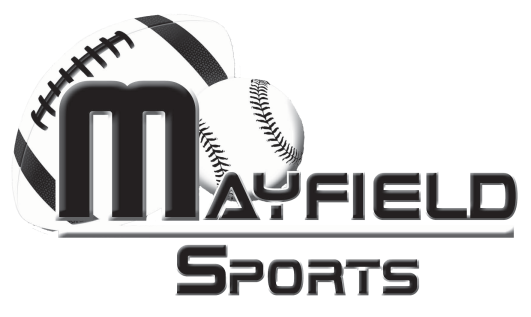Understanding Sports Law and Contract Basics

Navigating the world of sports contracts requires an understanding of sports law, which encompasses the legal issues and regulations unique to the sports industry. We recognize that at the core of any sports contract is a binding agreement that must mutually benefit the parties involved, usually an athlete and a sports entity.
When drafting or signing a contract, we emphasize the significance of rights. Every contract delineates rights for the athlete such as image rights, and for the sports entities, including marketing and commercial rights. It's crucial that these are clearly outlined to prevent disputes.
Engaging with a lawyer well-versed in sports law and contract negotiation is our recommended first step. These professionals ensure athletes and agents grasp the complexity of legal documents and the implications therein. Lawyers are vital in the negotiation process, advocating for the athlete's interests, and ensuring compliance with relevant regulations.
Our approach to contracts is systematic:
- Identify Terms: Clearly list the duties, rights, and obligations of each party.
- Review Clauses: Understand termination clauses, compensation, and dispute resolution.
- Check Compliance: Verify that contracts comply with the governing bodies of the specific sports.
We address the need for transparency and attest that contracts in professional sports are not just about the fine print but also about the fair and ethical treatment of athletes. With methodical scrutiny and due diligence, potential legal challenges can be averted, leading to a successful partnership between athletes and sports organizations.
The Role of Agents and Agencies in Contract Negotiation
When it comes to sports contract negotiations, agents and agencies stand as pivotal players. Their expertise in the complexities of contract law, industry standards, and athlete management ensures they are best positioned to secure beneficial deals for their clients.
The Art of Negotiating Sports Contracts
In our experience, agents adeptly manage the delicate balance between an athlete's worth and a speaking engagement's budget. Crafting a successful negotiation strategy involves an in-depth understanding of market values and the ability to articulate the unique value the athlete brings to the table. Agents use their industry knowledge and negotiation skills to optimize contract terms, ensuring they align with the athlete's professional trajectory.
- Key strategies include:
- Establishing a clear baseline for compensation
- Engaging in informed dialogue about terms and expectations
- Seeking advantageous clauses for image rights and bonuses
Managing Athlete Interests and Career Goals
A sports agent's primary responsibility is to navigate the intersection between an athlete's career goals and contractual obligations. This requires a nuanced approach to aligning speaking engagements with their client's brand and long-term aspirations. By understanding the athlete's interests, agents can tailor contracts that accommodate not just financial gains but also career development and personal growth.
- Interests often addressed:
- Brand alignment and personal branding opportunities
- Event types that match the athlete's expertise and public image
- Provisions for career development such as coaching roles or media appearances
Legal Considerations and Compliance in Agreements
Our team, which typically includes a specialized sports lawyer, focuses on compliance and legal safeguards in every contract. We recognize the critical nature of legal review to protect our clients from potential disputes and to ensure the adherence to sports regulations and bylaws.
- Legal areas scrutinized:
- Intellectual property rights and endorsement regulations
- Compliance with league and association standards
- Contract termination clauses and dispute resolution mechanisms
Through our tailored approach to sports contract negotiations, we cover all bases to champion the interests of athletes while maintaining the utmost professional guidance and legal compliance.
Contractual Elements and Player Rights

In professional sports, contracts form the legal foundation of a player's career and earnings. We closely examine how performance, morality, and overarching rights and obligations are articulated and protected within these agreements.
Performance and Compensation Clauses
Performance and compensation clauses are crucial for both parties in sports contracts. Compensation often includes a base salary, but we also see performance bonuses that incentivize athletes for exemplary achievements. For example:
- Base Salary: Guaranteed payment regardless of performance or potential injuries.
- Bonuses: Additional earnings tied to specific achievements; may include scoring goals, winning matches, or reaching certain performance milestones.
Typically, the athlete's market value affects the base compensation, while bonuses hinge on meeting predefined performance benchmarks.
Morality and Conduct Provisions
Morality and conduct provisions serve to protect the reputation of the sports entity involved. These clauses stipulate behavioral expectations and consequences for transgressions, thereby upholding the integrity of the sport. Key aspects include:
- Code of Conduct: Clear expectations regarding behavior both on and off the field.
- Morality Clause: Penalties for acts that tarnish a player's or team's reputation; may affect endorsements or lead to contract termination.
Adherence to these provisions is essential in maintaining both individual image rights and the collective ethos of the team or league.
Rights and Obligations within Sports Contracts
In the tapestry of sports contracts, rights and obligations form the mutual promises between player and organization. Elements include but are not limited to:
- Image Rights: Use of a player's likeness for promotions, merchandise, and endorsements; compensation is often negotiated for these rights.
- Injury Clauses: Provisions in the event of an injury, covering salary continuation and treatment obligations.
- Contract Duration and Termination: Specifics on the contract's length and grounds for termination by either party.
Our observation of contracts highlights the balance between an athlete's personal interests and the objectives of sporting institutions.
Strategies for Effective Contract Management
In managing contracts for professional sports speakers, we focus on key aspects such as financial stability and professional advancement while harnessing our understanding of the industry.
Balancing Financial and Professional Growth
Financial stability is paramount, but it should not hinder professional progress. We propose contracts that align with performance metrics, ensuring a speaker's remuneration mirrors their reputation and contributions. For instance:
- Base Salary: Reflective of the current market value and speaker's past performance.
- Growth Opportunities: Tie additional earnings to achievable performance metrics.
Leveraging Industry Knowledge and Market Value
Accurate assessment of a speaker's market value heavily relies on diligent research. Our negotiation strategy includes:
- Comparative Analysis: Assessment of similar contracts within the industry.
- Relevance Evaluation: How the speaker's expertise aligns with event goals.
Negotiating Bonuses and Incentives
Bonuses and incentives are pivotal in contract negotiations. We negotiate terms that benefit both the speaker and the hiring entity. This includes:
- Tiered Bonus Structure: Clear milestones for incremental bonuses.
- Performance Incentives: Additional rewards based on exceeding performance metrics.
Through preparation and strategic compromise, we ensure contracts are mutually advantageous and build upon a speaker's reputation and standing in the industry.
The Impact of Sports Contracts on the Industry
The landscape of professional sports is heavily influenced by the intricate web of contracts binding players to teams and leagues. NFL contracts, for example, are complex agreements that dictate not just the salary of athletes but also the strategic decisions of sports organizations. Through collective bargaining agreements, we see a balancing act between players' interests and the financial stewardship of leagues.
- Rookie contracts serve as a foundational component that shapes the future of a team. These standardized agreements ensure fair compensation and set a precedent for players joining the league through the draft.
- Brand endorsements and sponsorship deals extend beyond individual players, often encompassing teams and entire leagues, substantially increasing revenue streams.
- Negotiated media rights have turned sports into a stellar entertainment hub, aligning broadcast schedules with high-stakes games to capture audience attention.
Contracts in the sports industry also play a crucial role in protecting intellectual property rights such as trademarks and copyrights. This legal framework is essential to maintain the unique identity and value of sports entities in the market. Likewise, agreements regarding name, image, and likeness (NIL) are becoming more significant amidst the rise of social media, influencing both marketability and the dynamics within the sports milieu.
The power of sports contracts extends far beyond the playing field, considerably shaping the overall health and growth of the sports industry as a whole. Such agreements are not mere formalities but rather strategic tools leveraged by organizations to secure their competitive edge and long-term viability. Through our collective understanding and adaptation of these contracts, we sustain the vibrancy and economic impact of the sports sector.


